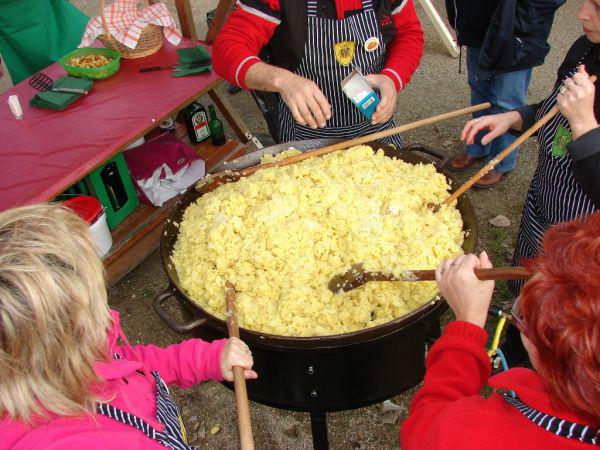
Nowadays, potatoes are considered an indispensable part of Slovenian cuisine, but it wasn’t always like that. Centuries ago, they were an exotic rarity viewed with great suspicion by the country’s peasant population.
Potatoes, which originated in South America, were brought to Europe by the Spanish in the 16th century, but it took longer for them to make their way across the continent. Making things even more difficult was the widespread belief that they were poisonous.
In the 18th century, the Austrian Empress Maria Theresa, concerned about frequent famines in her empire, ordered that potatoes be planted throughout the land. Many peasants, including those in the Slovenian lands, rebelled against the decree. Some refused to plant the unfamiliar tubers, while other destroyed potato plants that were already in the ground. In a few cases, soldiers had to be called in to protect the crop.
Even though Slovenia was among the last places in Europe to accept the potato, the Latin American import eventually turned out to be a huge success. It not only enabled the authorities to reduce hunger, but it also became a beloved staple of Slovenian cooking. Today, many traditional Slovenian dishes can hardly be imagined without potatoes.
In 2000, this Slovenian love for potatoes resulted in the creation of the world’s first Society for the Recognition of a Sautéed Potatoes as a Main Dish. The association began as a tongue-in-cheek project of passionate potato-lovers who gathered at a Ljubljana restaurant known as Pri Pavli (Pavla’s), but it grew into an altogether more serious affair.
The Society began to organize a World Sautéed Potato Festival, held each year in a different Slovenian town.
Potato-lovers from across Slovenia and abroad flock to the event, during which dozens of teams compete for the recognition of preparing the best sautéed potatoes with onions. True to the organization’s name, potatoes are always the main dish; anything else – an ox grilled on the spit in one case – is just an accompaniment. The festival has turned out to be such a culinary success that it has even been profiled on BBC Radio 4.
Since 2000, Pri Pavli has gone out of business, but the annual festival remains very popular -- as does the humble potato. The tuber was recently featured on a Slovenian postage stamp, and in 2008, the town of Šenčur even unveiled a memorial to the potato. The statue features Maria Theresa, who first brought the plant to Slovenia and forever changed the country’s cuisine.

































































